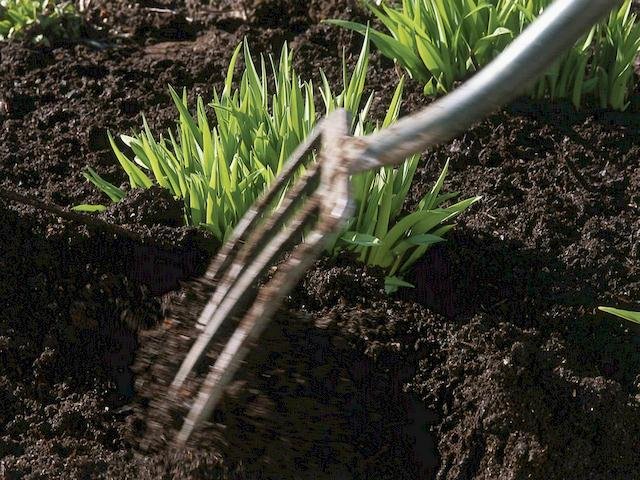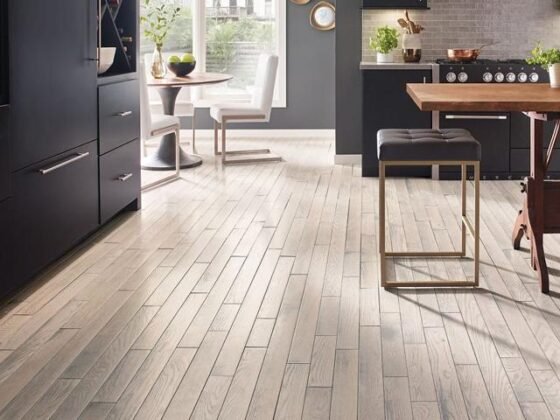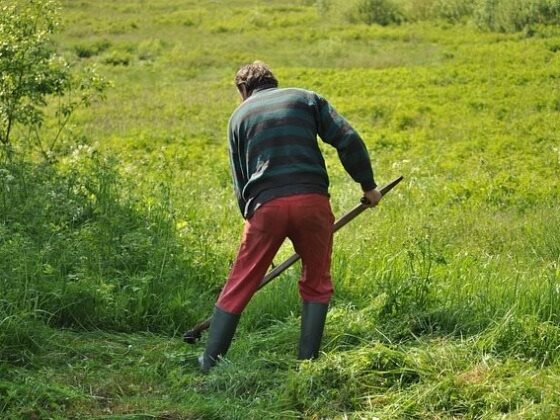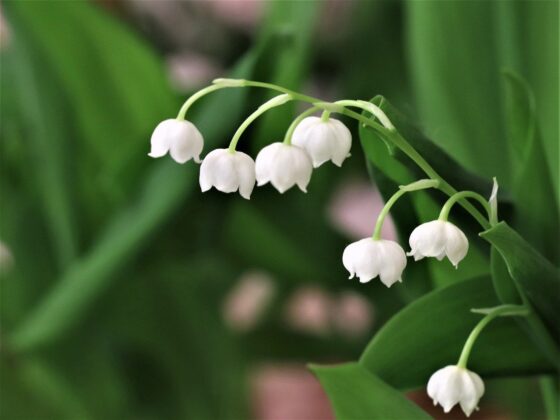Table of Contents Show
Selecting the Best Organic Mulch for Your Garden — Mulches serve multiple purposes in your garden including reducing weeds and holding moisture in the soil. A healthy, organic garden requires the proper use of organic mulch. Different mulches serve multiple purposes for your garden.
Selecting the Best Organic Mulch for Your Garden
In your search for the best type, you will notice two varieties: organic and inorganic mulches. Vegetable gardeners should opt for an organic mulch.
Unlike the plastic sheets you might spread around the front of your house, organic mulches are made from materials that were alive at one time. The inability to decompose is a common reason why people pick inorganic mulches, yet that is also the major flaw. Inorganic mulches contribute no additional nutrients into the soil through the decomposition process.

Why You Should Use Organic Mulches
Some gardeners are successful without any applications of mulches, but that isn’t normal! Mulch does more than cover the soil surface. Let’s take a look at some of the amazing benefits.
- Effective Method of Controlling Weeds: One of the most obvious reasons to use mulch is to prevent the growth of weeds. Weeds can slow the growth of your plants. If your primary goal is to stop weeds, two inches of mulch is recommended!
- Contributes Additional Soil Nutrients: Unlike inorganic mulch, organic mulch adds nutrients to your soil as it decomposes over time. For example, grass clippings contain nitrogen, which will seep into your soil as the clippings decompose!
- Retains Soil Moisture: Water is one of the most important factors when it comes to the proper growth of your plants. Mulch helps to reduce how often you have to water! It will retain the moisture, so you might be able to water every other day. Also, if you live in an area that frequently experiences droughts, mulch will hold in as much moisture as possible!
- Regulating Soil Temperature: Because mulches can retain moisture, they also help to regulate soil temperature. During cooler weather, mulch traps in the heat. During hot periods, the moisture trapped by the mulch keeps the soil cooler.
Organic mulches also come with the added benefit of being free or very cheap. Most of the options are available on your property or purchased from local farmers.
Must Read:
Mulches from Your Backyard
You don’t have to go far to find an organic mulch that your property produces itself! Some of the best choices are grass clippings, leaves, and compost created with kitchen waste and brown materials. Each type of mulch provides unique benefits, making them ideal for different scenarios.
Grass Clippings
Everyone loves free, and your property generates a never-ending supply of grass clippings throughout the growing season. Grass clippings contain high levels of nitrogen, as well as other nutrients. Nitrogen is a necessary nutrient for all plants and the soil.
Unlike other choices, grass clippings decompose rapidly. In an ideal scenario, you would cover your garden beds with a 2-inch blanket of fresh clippings. You might even find family and friends are willing to part with their grass clippings. If you take clippings from other people, take extra steps to ensure no herbicides were used.
Leaves
Autumn brings an abundance of leaves on your property. While you can use most leaves, avoid black walnut leaves because the leaves contain a chemical that stops the growth of several plants. Before you apply leaves to your garden beds, try running a lawnmower over the piles once or twice. Doing so makes it easier to gather the leaves and for them to decompose.
Using shredded leaves will add minerals to your soil that the trees absorbed to aid its growth! Leaves also help to feed the earthworms and increase beneficial microbes in your soil. If you happen to have sandy soil, leaves can help to lighten the soil and increase the retained moisture.
Pine Straw
If you want to reduce weed growth, pine straw is a great choice! As soon as the pine straw gets wet, it starts to mat down, blocking sunlight and stopping weed growth in its track! Despite the matting, pine straw is still lighter than using wood mulch, so water can seep underneath.
Pine straw is free if you happen to have pine trees on your property! Pine straw does take a long time to decompose, which you probably notice because it will sit under your trees for months. One thing to note is that it is a source of acid. Your soil acidity will increase if you use pine straw. Consider the plants in your garden; some plants don’t like high levels of acid. On the other hand, plants such as sweet potatoes, radishes, and peppers appreciate higher levels of acid.
Old Hay
You might not have old hay on your property, but it is cheap to buy. Farmers need to get rid of their wet and spoiled hay that they cannot feed to their livestock. However, garden plants love spoiled hay! Spoiled hay adds more nutrients and microbes to your soil than fresh hay!
One thing to remember is that hay is made from grass or grains. Since grass is like a weed in your garden, there is a chance you might spread some weeds into your garden. The best solution is to add more hay. Ideally, you would pile the plants about a foot deep around plants because that is too thick for weeds to grow.
The above four choices are some of the favorite picks for organic gardeners, but there are plenty of other options. Newspapers seem like an unlikely choice, but it is a great method for suppressing weeds. Some people even pick to use their compost as a mulch!
To make your decision, consider what resources you have available for you on the property. Grass clippings are the first choice for many people because of the abundance. However, you might have a pine tree that will let you use the needles for particular garden beds. As the weather changes, try adding some shredded leaves to the beds. Organic mulch choices might not help you win the Beautiful Garden Award, but the soil will thank you.









